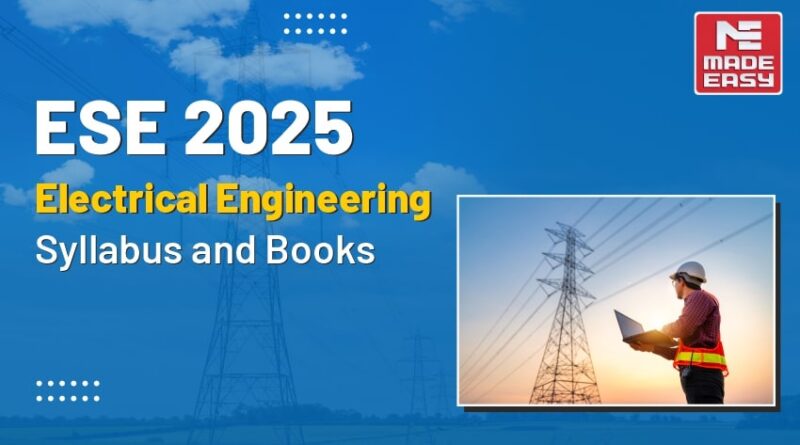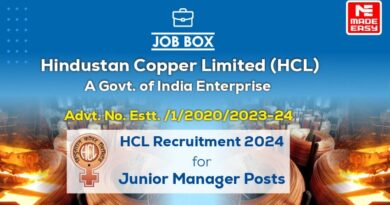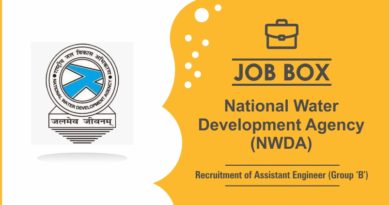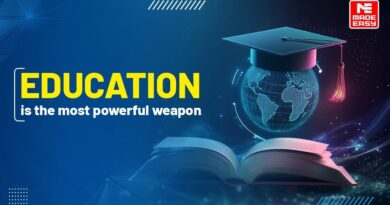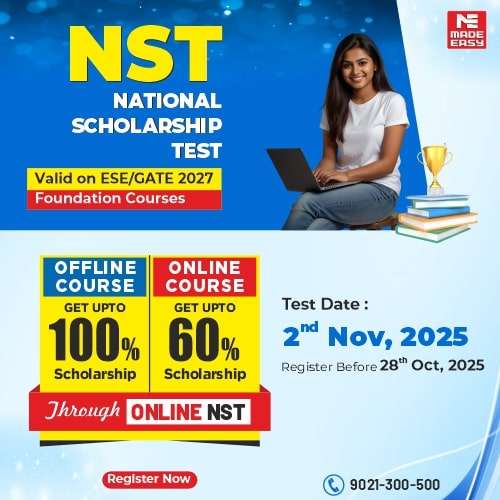ESE 2025: Electrical Engineering Syllabus and Books
ESE 2025 Electrical Engineering Syllabus and Books
The Engineering Services Examination (ESE) is one of the major examinations conducted by UPSC (Union Public Service Commission). Most engineering graduates and students consider the ESE as one of the most prestigious examinations amongst engineering graduates in the present times. Each year thousands of aspirants appear for this exam and clear the subsequent stages of the exam, i.e., Prelims Exam, Main Exam, and the personal interview round, to serve in one of the departments of the Government of India as designated officials.
What is ESE Electrical Engineering?
ESE Electrical Engineering is the electrical engineering paper in the Engineering Services Examination, which was popularly called ESE. The Electrical Engineering (EE) stream is one of the popular engineering streams associated with this national-level examination.
So today, we will discuss the detailed syllabus of the ESE Electrical Stream, to help the students identify the right path and start their preparation for the ESE Electrical Engineering Exam. Read More >>
What is the ESE Electrical Engineering Syllabus 2025?
ESE Syllabus Preliminary Stage-I Examination: Electrical Engineering (EE)
The standard of paper in General Studies and Engineering Aptitude (Preliminary Stage-I Examination) will be such as may be expected of an Engineering/Science Graduate. The standard of papers in other subjects will approximately be that of an Engineering Degree Examination at an Indian University. There will be no practical examination in any of the subjects. General Studies and Engineering Aptitude (Preliminary Examination/Stage-I, Paper I, Objective type, Common to all Candidates)
- Current issues of national and international importance, relating to social, economic, and industrial development.
- Engineering Aptitude covering Logical Reasoning and Analytical Ability.
- Engineering Mathematics and Numerical Analysis
- General Principles of Design, Drawing, Importance of Safety
- Standards and Quality practices in production, construction, maintenance, and services
- Basics of Energy and Environment: Conservation, environmental pollution and degradation, Climate Change, Environmental impact assessment.
- Basics of Project Management
- Basics of Material Science and Engineering
- Information and Communication Technologies (ICT) based tools and their applications in Engineering such as Networking, E-Governance, and technology-based education.
- Ethics and values in the engineering profession.
Note: The paper in General Studies and Engineering Aptitude will include knowledge of relevant topics, as may be expected from an engineering graduate, without special study. Questions from all the 10 topics mentioned above shall be set. Marks for each topic may range from 5% to 15% of the total marks in the paper.
Contents for the Syllabus of both the Papers together for the Preliminary Examination and separately for the Main Examination. The Preliminary Examination comprises Stage-I, objective type Paper-II. The Main Examination comprises of conventional type Paper-I and Paper-II.
ESE Main Syllabus Electrical Engineering Paper-I
1. Engineering Mathematics:
Matrix theory, Eigen values & Eigen vectors, system of linear equations, Numerical methods for solution of non-linear algebraic equations and differential equations, integral calculus, partial derivatives, maxima and minima, Line, Surface and Volume Integrals. Fourier series, linear, non-linear and partial differential equations, initial and boundary value problems, complex variables, Taylor’s and Laurent’s series, residue theorem, probability and statistics fundamentals, Sampling theorem, random variables, Normal and Poisson distributions, correlation and regression analysis.
2. Electrical Materials:
Electrical Engineering Materials, crystal structures and defects, ceramic materials, insulating materials, magnetic materials – basics, properties and applications; ferrites, ferro-magnetic materials and components; basics of solid state physics, conductors; Photo-conductivity; Basics of Nano materials and Superconductors.
3. Electric Circuits and Fields:
Circuit elements, network graph, KCL, KVL, Node and Mesh analysis, ideal current and voltage sources, Thevenin’s, Norton’s, Superposition and Maximum Power Transfer theorems, transient response of DC and AC networks, Sinusoidal steady state analysis, basic filter concepts, two-port networks, three phase circuits, Magnetically coupled circuits, Gauss Theorem, electric field and potential due to point, line, plane and spherical charge distributions, Ampere’s and Biot-Savart’s laws; inductance, dielectrics, capacitance; Maxwell’s equations.
4. Electrical and Electronic Measurements:
Principles of measurement, accuracy, precision and standards; Bridges and potentiometers; moving coil, moving iron, dynamometer and induction type instruments, measurement of voltage, current, power, energy and power factor, instrument transformers, digital voltmeters and multi-meters, phase, time and frequency measurement, Q-meters, oscilloscopes, potentiometric recorders, error analysis, Basics of sensors, Transducers, basics of data acquisition systems
5. Computer Fundamentals:
Number systems, Boolean algebra, arithmetic functions, Basic Architecture, Central Processing Unit, I/O and Memory Organisation; peripheral devices, data representation and programming, basics of Operating system and networking, virtual memory, file systems; Elements of programming languages, typical examples.
6. Basic Electronics Engineering:
Basics of Semiconductor diodes and transistors and characteristics, Junction and field effect transistors (BJT, FET and MOSFETS), different types of transistor amplifiers, equivalent circuits and frequency response; oscillators and other circuits, feedback amplifiers.
ESE Main Syllabus Electrical Engineering Paper-II
1. Analog and Digital Electronics:
Operational amplifiers – characteristics and applications, combinational and sequential logic circuits, multiplexers, multi-vibrators, sample and hold circuits, A/D and D/A converters, basics of filter circuits and applications, simple active filters; Microprocessor basics- interfaces and applications, basics of linear integrated circuits; Analog communication basics, Modulation and de-modulation, noise and bandwidth, transmitters and receivers, signal to noise ratio, digital communication basics, sampling, quantizing, coding, frequency and time domain multiplexing, power line carrier communication systems.
2. Systems and Signal Processing:
Representation of continuous and discrete-time signals, shifting and scaling operations, linear, time-invariant and causal systems, Fourier series representation of continuous periodic signals, sampling theorem, Fourier and Laplace transforms, Z transforms, Discrete Fourier transform, FFT, linear convolution, discrete cosine transform, FIR filter, IIR filter, bilinear transformation.
3. Control Systems:
Principles of feedback, transfer function, block diagrams and signal flow graphs, steady-state errors, transforms and their applications; Routh-Hurwitz criterion, Nyquist techniques, Bode plots, root loci, lag, lead and lead-lag compensation, stability analysis, transient and frequency response analysis, state space model, state transition matrix, controllability and observability, linear state variable feedback, PID and industrial controllers.
4. Electrical Machines:
Single phase transformers, three phase transformers – connections, parallel operation, auto-transformer, energy conversion principles, DC machines – types, windings, generator characteristics, armature reaction and commutation, starting and speed control of motors, Induction motors – principles, types, performance characteristics, starting and speed control, Synchronous machines – performance, regulation, parallel operation of generators, motor starting, characteristics and applications, servo and stepper motors.
5. Power Systems:
Basic power generation concepts, steam, gas and water turbines, transmission line models and performance, cable performance, insulation, corona and radio interference, power factor correction, symmetrical components, fault analysis, principles of protection systems, basics of solid state relays and digital protection; Circuit breakers, Radial and ring-main distribution systems, Matrix representation of power systems, load flow analysis, voltage control and economic operation, System stability concepts, Swing curves and equal area criterion. HVDC transmission and FACTS concepts, Concepts of power system dynamics, distributed generation, solar and wind power, smart grid concepts, environmental implications, fundamentals of power economics.
6. Power Electronics and Drives:
Semiconductor power diodes, transistors, thyristors, triacs, GTOs, MOSFETs and IGBTs – static characteristics and principles of operation, triggering circuits, phase control rectifiers, bridge converters – fully controlled and half controlled, principles of choppers and inverters, basis concepts of adjustable speed dc and ac drives, DC-DC switched mode converters, DC-AC switched mode converters, resonant converters, high frequency inductors and transformers, power supplies.
This completes the detailed ESE Electrical Engineering Exam Syllabus, that will help candidates prepare for this course in the best possible way. After understanding the syllabus, let’s find out the most useful resources including MADE EASY ESE 2025 Electrical Engineering Books.
ESE 2025 Exam Books for Electrical Engineering:
| S. No. | Subject | Book Name | Author |
|---|---|---|---|
| 1. | Electric Circuits | Network Analysis | M. E. Van Valkenburg |
| Fundamentals of Electric Circuits | Charles K. Alexander Matthew N. O. Sadiku |
||
| 2. | Control Systems | Control Systems Engineering | Norman S.Nise |
| Control Systems Engineering | I. J. Nagrath, M. Gopal | ||
| 3. | Signals and Systems | Signals and Systems | Alan V. Oppenheim, Alan S. Willsky |
| Digital Signal Processing | John G. Proakis Dimitris G. Manolakis |
||
| 4. | Power Systems | MADE EASY Theory Books: Power Systems | MADE EASY PUBLICATIONS |
| Power System Engineering | D P Kothari, I J Nagrath | ||
| Power System Analysis | John J. Grainger, William D. Stevenson, JR. | ||
| 5. | Analog Electronics | Microelectronic circuits | Adel S. Sedra, Kenneth C. Smith |
| Electronic Circuits: Analysis and Design | Donald A. Neamen | ||
| 6. | Digital Electronics | Digital Design | M. Morris Mano |
| Digital Fundamentals | Floyd & Jain | ||
| 7. | Microprocessors | Fundamentals of Microprocessors and Microcontrollers | B.Ram |
| 8. | Communication Systems | Communication Systems (Fourth Edition) | Simon Haykin |
| Modern Digital and Analog Communication Systems | B.P. Lathi | ||
| 9. | Electromagnetic Fields | Principles of Electromagnetics | Matthew N. O. Sadiku, S. V. Kulkarni |
| 10. | Electrical Materials | Materials Science and Engineering | William D. Callister |
| Electrical Engineering Materials | S. P. Seth | ||
| Introduction to Nanotechnology | Charles P.Poole, Frank J.Owens | ||
| 11. | Electrical and Electronic Measurements | A Course in Electrical and Electronic Measurements and Instrumentation | A. K. Sawhney |
| Electrical Measurements and Measuring Instruments | Golding E W, Widdis F C | ||
| 12. | Electrical Machines | Electrical Machinery | P. S. Bimbhra |
| Electric Machines | D P Kothari, I J Nagrath | ||
| 13. | Power Electronics | Power Electronics | P.S. Bimbhra |
| Power Electronics Circuits, Devices, and Applications | Muhammad H. Rashid | ||
| 14. | Engineering Mathematics | Advanced Engineering Mathematics | Erwin Kreyszig |
| Advanced Engineering Mathematics | R.K.Jain, SRK Iyengar | ||
| 15. | Computer Fundamentals | Computer System Architecture | M. Morris Mano |
| Operating System Concepts | Abraham Silberschatz, Peter Baer Galvin, Greg Gagne |
What are some of the recommended books to cover the ESE Electrical Engineering syllabus 2025?
Below are the most recommended books for preparing for the ESE Electrical Engineering Syllabus 2025 for Prelims and Main published by MADE EASY Publications:
- ESE 2025: Preliminary Exam: Electrical Engineering Objective Solved Paper Vol-2
- 2900 MCQs : Electrical Engineering- Practice Book for Junior Engineering
- 3500 MCQ : IES/GATE/PSUs: Electrical Engineering
- A Handbook on Electrical Engineering
Apart from these, you are also recommended to read Weekly Current Affairs (free of cost), available on MADE EASY
You can also find other books on specific topics related to electrical engineering at MADE EASY Publications. So, do not hesitate to choose ESE Electrical Engineering Books for the best possible preparation for UPSC ESE 2025 Syllabus.
Are you also looking for quality guidance for ESE from India’s best faculties? Then do not forget to have a look at the best Courses and Test Series:
- ESE + GATE + SES (GS) 2025-26 Live Online Foundation Courses
- Tablet Course for ESE+GATE 2025 – 26
- GATE + ESE 2025 Online Recorded Course
- ESE Online Test Series 2025
Hope this blog post helps you to prepare in a result-oriented manner and secure the best possible rank in the Engineering Services Examination (ESE).
Stay connected with our blog platform to stay updated with more such updates!
Dear Aspirants,
Your preparation for GATE, ESE, PSUs, and AE/JE is now smarter than ever — thanks to the MADE EASY YouTube channel.
This is not just a channel, but a complete strategy for success, where you get toppers strategies, PYQ–GTQ discussions, current affairs updates, and important job-related information, all delivered by the country’s best teachers and industry experts.
If you also want to stay one step ahead in the race to success, subscribe to MADE EASY on YouTube and stay connected with us on social media.
MADE EASY — where preparation happens with confidence.

MADE EASY is a well-organized institute, complete in all aspects, and provides quality guidance for both written and personality tests. MADE EASY has produced top-ranked students in ESE, GATE, and various public sector exams. The publishing team regularly writes exam-related blogs based on conversations with the faculty, helping students prepare effectively for their exams.

